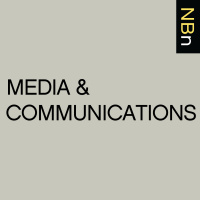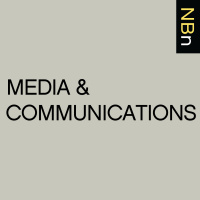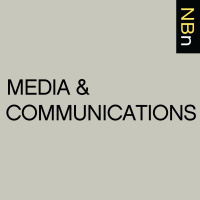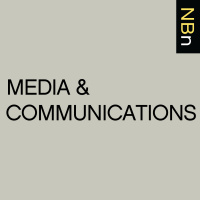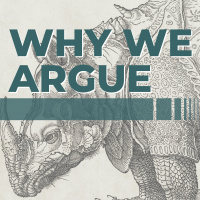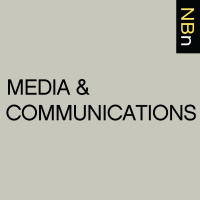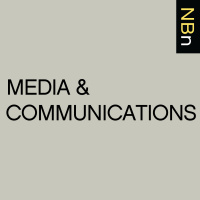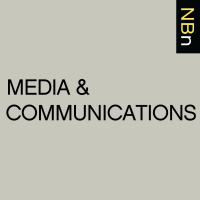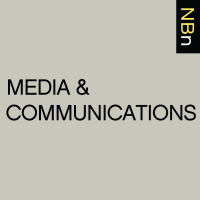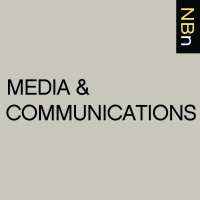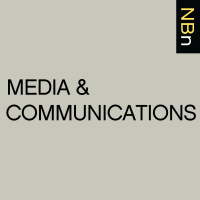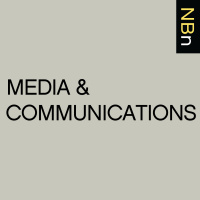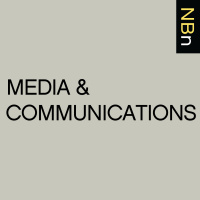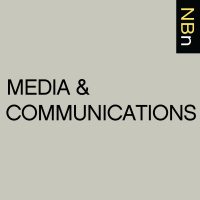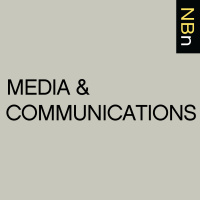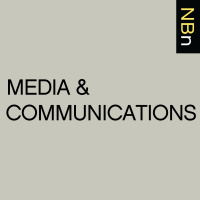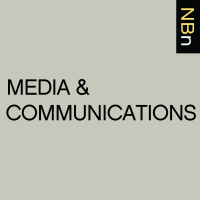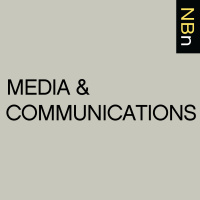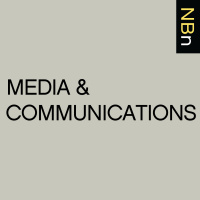Synopsis
Interviews with Scholars of Media and Communications about their New Books
Episodes
-
Christopher Grobe, “The Art of Confession: The Performance of Self from Robert Lowell to Reality TV” (NYU Press, 2017)
16/02/2018 Duration: 01h10minChristopher Grobe’s The Art of Confession: The Performance of Self from Robert Lowell to Reality TV (New York University Press, 2017) traces the ways the performance of confession permeated and transformed a wide range of media in postwar America. Grobe explores how confession—from the confessional poets of the 1960s to contemporary reality TV—is both constructed and authentic, artful even in its ostensible artlessness, and always on the move between and across media. The work’s archive is expansive, placing in conversation poetry, performance art, comedy, legal confession, film, and reality TV, genres whose conventions transform and whose boundaries blur when confronted with artists impulses to confess, to stage what Grobe calls “breakthroughs” out of both generic and sociocultural containment. Laying bare the ways confessional performances are stylized and mediated to elicit “a satiety of experience which can be taken as reality” while taking seriously artists’ attempts to reveal and perform an authentic se
-
Dmitry Novikov, “Cybernetics: Past to Future” (Springer Verlag, 2016)
15/02/2018 Duration: 01h01minWith all of its entailed engagements with epistemology, emergence, and self-organization, cybernetics began (and arguably still is) the science of communication and control in the animal and the machine as it was coined in the subtitle of Norbert Wiener’s field defining book of 1948. While the reflexive turn of second-order cybernetics in the 1970s led the field down new paths (and, unfortunately, to the margins of mainstream academia) in the West, Soviet thinkers continued to develop the control scientific implications of the field in a manner that remained central to the scientific enterprise of that nation. In his densely packed book, Cybernetics: Past to Future (Springer Verlag, 2016), Dmitry Novikov provides a detailed and erudite analysis of the fields development as a kind of meta-science or philosophy of the varied strands of control theory across technological, biological, and social systems. As the current Director of the Institute of Control Sciences of the Russian Academy of Science, Dr. Novikov i
-
Andrew Keen, “How To Fix The Future” (Atlantic Monthly Press, 2018)
06/02/2018 Duration: 01h50sAs a historian I find myself constantly asking the question “Is that really new, or is it rather something that looks new but isn’t?” If you read the headlines, particularly those concerning the on going “Digital Revolution,” you would certainly get the impression that a Brave New World is emerging, one nothing like anything that we’ve seen before. And, in a way, this is true: we—meaning humans—have never lived in an environment with smartphones, social media, and the firehose of “information” that is the Internet. We’re always on and always connected in a way we have never been before. But, as Andrew Keen points out in his smart new book How To Fix The Future (Atlantic Monthly Press, 2018), there is also a sense in which we have been here before, namely, in the Industrial Revolution of the late 18th and 19th century. Then, too, technology and new forms of organization upended the way almost everyone in the industrializing world lived. (For more, see Auguste Comte, Karl Marx, and Emile Durkheim, unless you l
-
Kevin Patrick, “The Phantom Unmasked: America’s First Superhero” (U Iowa Press, 2017)
02/02/2018 Duration: 01h07minIn The Phantom Unmasked: America’s First Superhero (University of Iowa Press, 2017), Kevin Patrick examines the history of The Phantom—an American comic strip superhero that made his debut in 1936. Although not popular in the United States, The Phantom knows a long history and popularity in Australia, Sweden, and India. In The Phantom Unmasked, Patrick explores this history. By tracing the publication history of The Phantom and connecting its success to the media licensing industries starting in the 1930s and 40s, Patrick presents an under-explored history to show the role of this comic in international markets and its importance for understanding how international markets worked. In The Phantom, Patrick assesses how historical, cultural, political, and economic conditions impacted The Phantom’s rise in popularity in Australia, Sweden, and India. In addition, he surveys Phans in order to explain how they have come to love the superhero. Well researched and informative, The Phantom Unmasked adds to the burgeo
-
Nick Montfort, “The Future” (MIT, 2017)
29/01/2018 Duration: 32minPopular culture provides many visions of the future. From The Jetsons to Futurama, Black Mirror to Minority Report, Western culture has predicted a future predicated on innovations in technology. In his new book for the MIT Essential Knowledge Series, The Future (MIT Press, 2017), Nick Montfort examines the writings of previous futurist writers, thinkers, and designers to provide an understanding of how the future can be constructed. In so doing, Montfort argues that the future is something we can shape instead of only predict. Learn more about your ad choices. Visit megaphone.fm/adchoices
-
Public Debate and Respectful Engagement with John Corvino
25/01/2018 Duration: 27minJohn Corvino is Professor of Philosophy at the Wayne State University in Detroit. His academic work focuses on topics in moral, social, and legal philosophy surrounding sexuality, gender, marriage, religious conviction, and discrimination. But John is also an active public philosopher who frequently participates in public debates over these topics. He produces and appears in a popular YouTube series of short videos devoted to the philosophical discussion of controversial topics. He is the author of What’s Wrong with Homosexuality?, co-author (with Maggie Ghallagher) of Debating Same Sex Marriage, and.co-author (with Ryan Anderson and Sherif Girgis) of Debating Religious Liberty and Discrimination, all published with Oxford University Press. The "Why We Argue" podcast is produced by the Humanities Institute at the University of Connecticut as part of the Humility and Conviction in Public Life project. Learn more about your ad choices. Visit megaphone.fm/adchoices Support our show by becoming a premium member!
-
Jacob Smith, “Eco-Sonic Media” (University of California Press, 2015)
18/01/2018 Duration: 37minCan we have sound media that is ecologically sound? Can we fine tune our media production and consumption habits to a greener key? How can an environmental perspective on sound media contribute to our understanding of how media culture is involved in the ecological crisis? These are just some of the questions Jacob Smith is trying to answer in his latest book, Eco-Sonic Media (University of California Press, 2015). The book brings an ecological critique to the history of sound media technologies and contributes with an environmental perspective to the field of sound studies. It is more than a methodological and theoretical exploration. It is a reckoning with our media consumption practices in an age where speed and volume are taken for granted, and alternatives to the digital are disregarded with huge costs. Hartz Canary Training Record is the jingle used in the episode and was kindly provided by Jacob Smith. It was cut and edited for the purpose of this podcast. Learn more about your ad choices. Visit megap
-
Liam Cole Young, “List Cultures: Knowledge and Poetics from Mesopotamia to Buzzfeed” (Amsterdam UP, 2017)
09/01/2018 Duration: 50minThe list is the origin of culture. At least, that’s according to Umberto Eco, whose words open Liam Cole Young‘s new book, List Cultures: Knowledge and Poetics from Mesopotamia to Buzzfeed (Amsterdam University Press, 2017). Young follows shifting functions of the list through history, revealing a form that “mediates boundaries between administration and art, knowledge and poetics, sense and nonsense” (10). Where systems of order surround and enframe human society, the list is there. Lists shape and shift the social world as new uses for the list are discovered, adapted, modified, and abandoned. As a searching exploration of the way that our intellectual tools “simultaneously conceal and reveal, enforce and subvert social systems,” List Cultures proves to be a rewardingly vigorous and sweeping intellectual history. List Cultures restores formal analysis to a critical discourse divided between analyses of institutions, contexts, and particular historical uses of texts. Beginning with a rereading of the earli
-
Thomas Mullaney, “The Chinese Typewriter: A History” (MIT Press, 2017)
09/01/2018 Duration: 02h16minTom Mullaney’s new book The Chinese Typewriter: A History (MIT Press, 2017) provides a fascinating first look at the development of modern Chinese information technology. Spanning 150 years from the origins of telegraphy in the early 1800s to the advent of computing in the 1950s – the book explores the at times fraught relationship between Chinese writing and global modernity. It covers some of the earliest and varied attempts to make the Chinese script fit for Western communication systems, taking the reader on a journey through Chinese telegraphy, Morse code, typewriters and early computing. In addition, Mullaney includes reference to the many failed attempts, ideas and approaches in the history of Chinese information technology through a series of lively and insightful stories and people. Perhaps most interestingly, Mullaney covers how various inbuilt linguistic inequalities in turn eventually led to the evolution of innovative strategies and technologies, including input method and predictive text. Ric
-
Mark Fenster, “The Transparency Fix: Secrets, Leaks, and Uncontrollable Government Information” (Stanford UP, 2017)
30/12/2017 Duration: 45minThe Transparency Fix: Secrets, Leaks, and Uncontrollable Government Information (Stanford University Press, 2017) dispels the myth that transparency of information will result in a perfect government. Dr. Mark Fenster discusses the motivations of transparency movements and justifications for state secrecy. Through the lens of communications theory, Fenster raises questions about the utility of disclosed information and how it may or may not be deemed valuable by the public. Fenster also examines the state’s ability to keep secrets and what, if any, outcomes result from information disclosure. In conclusion, Fenster asserts transparency, on its own, will not fix the state, but focused efforts on good governance just might. Beth Windisch is a national security practitioner. You can tweet her @bethwindisch. Learn more about your ad choices. Visit megaphone.fm/adchoices
-
Rodney Tiffen, “Disposable Leaders: Media and Leadership Coups from Menzies to Abbott” (NewSouth Publishing, 2017)
22/12/2017 Duration: 17minIn his new book, Disposable Leaders: Media and Leadership Coups from Menzies to Abbott (NewSouth Publishing, 2017), Rodney Tiffen, Emeritus Professor in Government and International Relations at the University of Sydney, explores the historical and recent leadership coups in Australian politics, and the role of media in them. As leadership in Australia has become more precarious in recent years, political instability has taken its toll on the parties and the democratic system more broadly. Learn more about your ad choices. Visit megaphone.fm/adchoices
-
Julien Mailland and Kevin Driscoll, “Minitel: Welcome to the Internet” (MIT Press, 2017)
21/12/2017 Duration: 58minWhen discussing Internet history, many within the United States believe the creation myth of an Internet born in Silicon Valley. But aspects of the Internet that we use for shopping, financial transactions, and social interactions, among other things, have roots in technological advances from other countries. In particular, 15 years before most Americans were online, the French government backed a communications technology, the Minitel, that revolutionized social, political, and financial interactions. In Minitel: Welcome to the Internet (MIT Press, 2017), Julien Mailland and Kevin Driscoll discuss the creation and spread of the Minitel and the particular influence it had on France, and ultimately what we call the Internet. In so doing the authors offer lessons for current regulatory debates. Learn more about your ad choices. Visit megaphone.fm/adchoices
-
Alfie Bown, “The Playstation Dreamworld” (Polity, 2017)
20/12/2017 Duration: 43minHow can Lacan help us to understand the subversive potential of video games? In The Playstation Dreamworld (Polity, 2017), Alfie Bown, Assistant Professor of Literature at HSMC, Hong Kong, explores this and many other questions of the modern condition. The book offers an accessible overview of key psychoanalytic theories to understand the video game, in particular the video game experience and its impact on the social world. The book uses a plethora of gaming examples, drawing out the ambivalences and potentials in even the most seemingly un-revolutionary games. These range from the transformation of space and urban experience in Pokemon Go, through the more corporate or reactionary experiences of Uncharted, through to the subversive elements of Papers Please. The book is essential reading for anyone interested in understanding how we live, through video games, now. Learn more about your ad choices. Visit megaphone.fm/adchoices
-
Mario Luis Small, “Someone to Talk To” (Oxford UP, 2017)
19/12/2017 Duration: 56minWho do people turn to when they want to talk about serious issues in their life? Do they end up confiding in people they list as confidants? In his new book, Someone to Talk To (Oxford University Press, 2017), Mario Luis Small uses in-depth interviews with first-year graduate students to uncover how intimate conversations are executed in real time. This book is interesting in the way that the interviews unfold; readers will find themselves nodding in agreement and thinking about social networks in new ways. A common theme throughout the book is how our behavior differs from what we may answer on a survey and under what circumstances it does so. For instance, weak ties, not strong ties, are relied upon more often than previous research would suggest. At the end of the book Small turns to empirical and theoretical generalizability finding many examples and surveys of non-graduates students echoing his study. In an era of big data Small encourages us to not lose sight of the human behavior we are studying and th
-
Zek Valkyrie, “Game Worlds Get Real: How Who We Are Online Became Who We Are Offline” (Praeger, 2017)
15/12/2017 Duration: 56minZek Valkyrie teaches at the University of Colorado in Colorado Springs. His new book, Game Worlds Get Real: How Who We Are Online Became Who We Are Offline (Praeger, 2017), takes readers into the world of electronic games and the complex social relationships that they create. With the mainstream reader in mind, it serves as a primer for anyone interested in the how and why of gaming, as well as a solid introduction to social science concepts generally. The book does not presume apologetics for video games—to be sure, the author takes a direct approach to discussing the myriad social problems inherent in the medium. Along with the many positives to collaborative and competitive online play, major topics include sexism, masculinity, various gamer stigmas, identity formation, and consumption, among others. In this conversation we touch of all of these, as well as the books origins, how the author was able to include student work in the final publication, and his award-winning teaching methods. Learn more about y
-
Brett L. Abrams, “Terry Bradshaw: From Super Bowl Champion to Television Personality” (Rowman and Littlefield, 2017)
15/12/2017 Duration: 47minToday we are joined by Brett L. Abrams, author of the book Terry Bradshaw: From Super Bowl Champion to Television Personality (Rowman & Littlefield, 2017). It is part of a series called Sports Icons and Issues in Popular Culture. Abrams, an archivist of electronic records in Washington. D.C., does more than just document the football career of Hall of Fame quarterback Terry Bradshaw, who won four Super Bowl titles during the 1970s with the Pittsburgh Steelers. Abrams goes beyond the nuts and bolts of a successful athletic career and explores Bradshaw’s foray into country and gospel singing, his acting in movies, his adventure as a part owner of a NASCAR team, and finally, his long and successful run as a NFL color commentator and later a studio analyst first for CBS, and then for Fox. Maligned during his playing career for a perceived lack of intelligence—a prejudicial view of Southerners mostly held by people north of the Mason-Dixon line, Bradshaw played off his L’il Abner, good o’l boy image to craft his o
-
Rebecca Tuhus-Dubrow, “Personal Stereo” (Bloomsbury Academic, 2017)
12/12/2017 Duration: 35minRebecca Tuhus-Dubrow‘s book, Personal Stereo (Bloomsbury Academic, 2017) , which is part of the Object Lessons series, offers a compelling and expertly researched study of the Sony Walkman, taking into account the device’s controversial origin story, the seismic cultural impact on society in the 1980s, the worries of diminishing social interactions, and the philosophical implications of listening to music within one’s own private bubble. All this is channeled through a personal nostalgic affection for the device. Rebecca Tuhus-Dubrow is a writer-in-residence at the University of California, Irvine. Her writing has appeared in Slate, The Nation, The New York Times Book Review, the Los Angeles Review of Books, and Dissent, where she is a contributing editor. She was previously a contributing writer for the Boston Globe’s Ideas section, a columnist for the urban affairs website Next City, and a Journalism and Media Fellow at the UCLA Institute of the Environment and Sustainability. Stephen Lee Naish is a wri
-
Bob Batchelor, “Stan Lee: The Man Behind Marvel” (Rowman and Littlefield, 2017)
12/12/2017 Duration: 01h11minIn his new book, Stan Lee: The Man Behind Marvel (Rowman and Littlefield, 2017), cultural historian and biographer Bob Batchelor examines the life of Marvel’s Stan Lee one of the most iconic figures in comic book history. Batchelor has written the first biography of Stan Lee. Starting with his childhood as a Depression-era New Yorker born to immigrant parents, Batchelor follows Lee’s career as a teenage editor at Marvel Comics, his stint as a playwright for the United States Army during World War II, and his unrelenting work ethic and drive that transformed the comic book industry and brought characters such as Spider Man, the Hulk, Iron Man, the Fantastic Four, the Avengers, and the X-Men to life. Batchelor explores the larger place in popular and American cultural history that Stan Lee has played over the past 70 years from comics to television to film, reflecting on the role of the superhero in the American experience. Well researched, Stan Lee: The Man Behind Marvel gives insight not only into well-known
-
Jo Littler, “Against Meritocracy: Culture, Power, and Myths of Mobility” (Routledge, 2017)
17/11/2017 Duration: 45minHow does the idea of ‘meritocracy’ serve to reinforce social inequality? In Against Meritocracy: Culture, Power and Myths of Mobility (Routledge, 2017) Dr Jo Littler, Reader in Culture and Creative Industries at City, University of London analyses the history of the term, the political project it has been associated with, and the cultural manifestations of its neo-liberal form. The book charts the early, critical and satirical, origins of the idea, mapping its co-option by right wing governments within a project of state transformation and the end of social democracy. Allied to the genealogy of the idea, and the politics of inequality to which it is attached, the book details various manifestations of meritocratic culture that serve to exclude and divide. Here there are rich case studies of inequality of class, gender and ethnicity, ranging from #Damonsplaining, through ‘mumpreneurs’ to normcore plutocrats. Ranging widely, but theoretically grounded, the book is essential reading for anyone wanting to know h
-
Jessica M. Fishman, “Death Makes the News: How the Media Censor and Display the Dead” (NYU Press, 2017)
14/11/2017 Duration: 40minIn her book, Death Makes the News: How the Media Censor and Display the Dead (NYU Press, 2017), Jessica M. Fishman examines how death is presented in the media. Researching how media outlets present images of death over the past 30 years, Fishman explores the controversial practice of picturing the dead. Fishman presents the varying ways the press selects the images they choose to use, the way they make decisions of what images they use, and why. Her research reveals that much of what we think we know about how dead bodies are, or are not, shown in the media is wrong. The tabloid press is less likely to show a dead body, media show dead foreign bodies more often than they show dead American bodies, and the exceptions to the rules the media uses to portray the dead are not often altered. Well researched, with knowledge from editors and photojournalists about the decisions made around images of death, Jessica Fishman’s work gives readers new ways to think about the ways death does, and does not, make the news.

